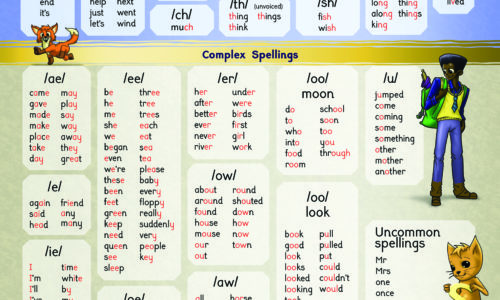
English is complex and we need to teach reading in a structured way, from simple to complex. Unfortunately, there is no avoiding high-frequency words with spellings the children haven’t learnt yet because they are present in even the simplest of sentences, e.g. ‘The cat is on the mat’. In the very first sentences children read […]
Read More

